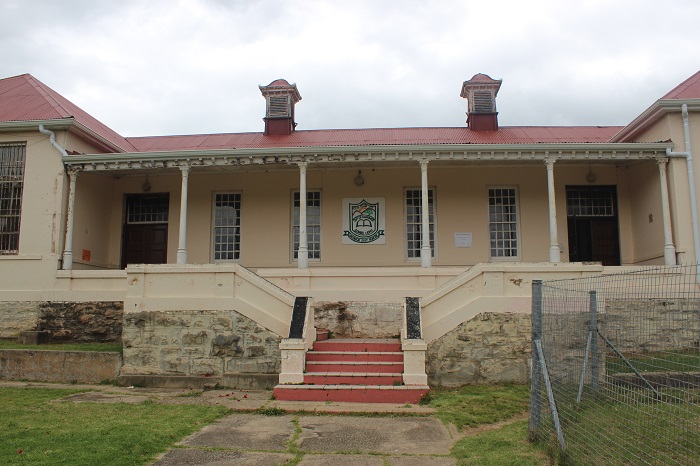By Selenathi Botha
Despite a myriad of challenges – water problems, a poor academic record due to teacher shortage and underperforming learners – to mention a few, the Riebeek East Combined School is turning the corner.
According to the principal, Thobile Ncula, the school had very few teachers and learners who were not performing well. As a result, its academic record and performance were low, which was partly attributed to economic problems and environmental issues such as water scarcity.
Ncula, who has been the principal since 2015, explains that the school has learners from different outlying farms. “Riebeek East Combined School has 93 learners – starting from grade R to 9. At first, the school used to start from grade R to grade 12, until the Department of Education transferred grades 10 to 12 to other schools because they were not performing well.”
One of the major challenges faced by the learners was water outages. They would go a week without water, said Ncula, forcing the school to close as the situation was putting the teachers and the learners at risk of getting sick. “That affected [the learners]academically because they were not at school most of the time.”
After Ncula joined the school, he and other colleagues came up with programmes aimed at improving and assisting the institution. They formed partnerships with other companies such as Born Free, which helps with environmental education that is relevant to technology and life science, as well as a humanitarian organisation known as AMANZI: Water to Schools, formed by Julia Heemstra. The project ensures that water is available in schools. Heemstra’s fundraising efforts led to the installation of Eco-Friendly Toilets at the Riebeek East school in June this year to replace the old ones.
After that, the school’s water problems became a thing of the past as it could harvest its own water and not depend on the municipality.
Heemstra was born in the United States and moved to the Eastern Cape in Makhanda when she was four years old. She moved back to the US when she was 12 years old but returned to Makhanda in 2017.
Her work has made a difference in schools, including the Riebeek East one. She started water filter work at schools and clinics and, in 2022, formed the AMANZI: Water to Schools project, utilising climate-smart technology. The toilets do not require water, pipes, plumbing or access to the sewer system. The roofs were repaired, refinished and repainted. The asbestos gutters were safely removed and disposed of. New aluminium gutters were installed. With refurbished roofs and new gutters, the school now has consistent availability of water and, thus, a healthier environment for learning.
Six tanks were installed to store 60,000 litres of water for drinking, washing hands and for the kitchen, all in an effort to bring back the dignity of the teachers and learners of the school.
This year, the school’s academic marks took a turn for the better. There was an improvement academically, says Ncula. “Children are always at school, not missing any lesson. That will affect their school reports, and they are healthy.”


